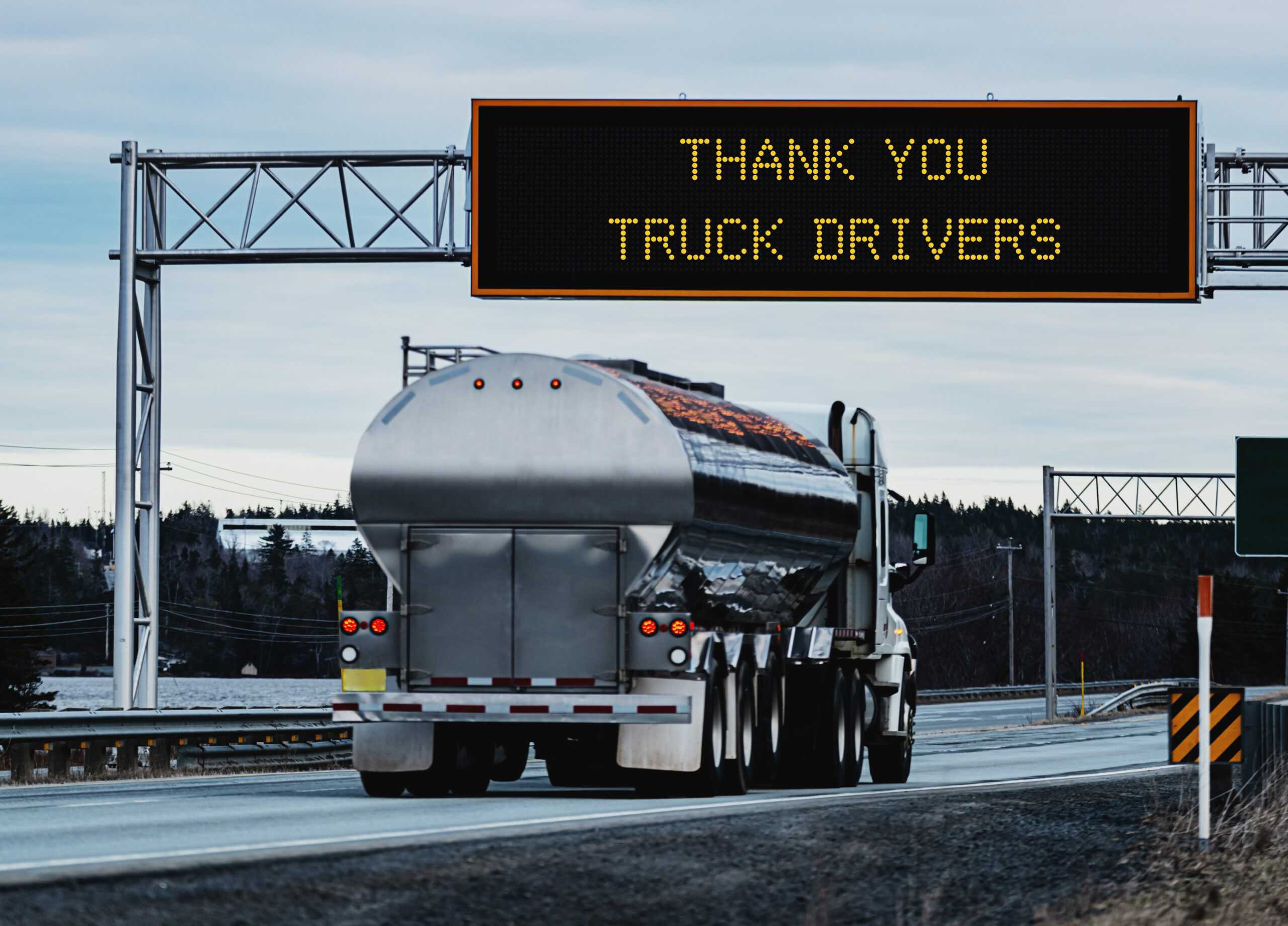Trucking Company Changes in the Face of COVID-19

It’s safe to say that “COVID-19,” “the coronavirus,” “social distancing,” and “PPE” are phrases we’ve heard frequently in the last three months. That’s true for essential workers as well — they’re taking in a ton of information and are looking to leaders to alleviate their concerns about their well-being and the future.
Because of the nature of their work, these fears and concerns have been magnified for drivers.
Back in February, we first began hearing from truck drivers with concerns related to COVID-19. In March, that number ramped up steadily, accounting for 14 percent of total feedback.
As April began, the number was even bigger — in fact, the amount of feedback related to the coronavirus between April 1 and 15 alone exceeded what was received in the entire month of March. Twenty-seven percent of all feedback in April feedback related to the pandemic in some way.
There are a ton of issues on the minds of drivers, and their feedback has steadily revolved around what their companies could do to alleviate their concerns and make them feel protected and valued.
The Themes We’re Seeing in Feedback
In a recent blog, we touched on how to communicate with your driving team during this pandemic. Part of that was exploring what drivers were thinking and sharing with us.
Feedback has revolved around some impactful questions from drivers:
- Does my company have plans for dealing with COVID-19?
- Will I receive additional supplies to help protect me and sanitize equipment?
- Will my benefits cover me if I become ill?
- Will my workload remain consistent?
- Will my company help me obtain the necessities and resources I need, such as food along the route?
Simply put, drivers want to know: Does my carrier have my back?
As we’ve moved further into the COVID-19 crisis, we’ve seen driver feedback reflect some more specific feelings and requests. Drivers are looking for assistance related to their finances — either through hazard pay, or on the flipside, deferral of costs such as truck payments or tuition.
Driver morale is also often an issue, with one-fifth of drivers expressing that they are experiencing contradictory feelings of both perseverance and frustration. Sanitation, individual risk, and planning also remain high on the list of feedback topics.
On the whole, drivers simply want to know that they are important to their companies and that they will be protected.
So, what are companies doing to keep their drivers safe and secure on the road? Let’s take a look at some changes we’re seeing implemented.
How Companies Are Implementing Change
We’ve long believed that while gathering feedback is an important first step, it’s the next step that’s most important. You have to turn feedback into action in order to gain the trust of your drivers.
That’s especially true during a crisis. While now is not a time when drivers are likely to look for another company, they are turning a critical eye toward your actions at this time. They want — and need — to see that they are valued, and they are watching the changes your company makes right now to alleviate their concerns.
The changes being implemented will vary from company to company, since every business’s needs are unique. But here are a few big and small gestures we’ve seen companies make to positively impact driver experience:
- One carrier locked the doors at the office, a small change demonstrating a desire to protect both drivers and office workers, and everyone else who might be in the area.
- Companies are turning to online orientation and safety training, acknowledging that hiring isn’t frozen and the training process must continue — but in a safe way.
- Some carriers are taking extra steps to seek out personal protective equipment for drivers, helping them gear up to stay safe.
- Many businesses are implementing pay changes, such as introducing hazard pay to recognize that drivers are putting themselves at risk when delivering or picking up in a city with a high infection rate.
- One company paid drivers to take a week off, recognizing that they didn’t have enough freight to go around, but also ensuring drivers were taken care of.
No matter what changes you implement, it’s important to keep your drivers’ needs and wants top of mind to alleviate their concerns. What you do in the short-term will matter in the long-term.
“All employees, even beyond drivers, are going to remember how their company handled this time,” says Katie Love, Marketing Manager at WorkHound. “Job hopping isn’t an option right now, but workers will remember how they were treated six months from now. They want to know that you care.”
Wondering about the specific concerns and questions your drivers may have? Talk with an expert to learn how we can help.
Let's Build Better Workplaces Together
Revolutionize your company culture and your worker retention rates by improving communication and engagement.
Book a Demo

